Former Site of Shun-dunchi
History
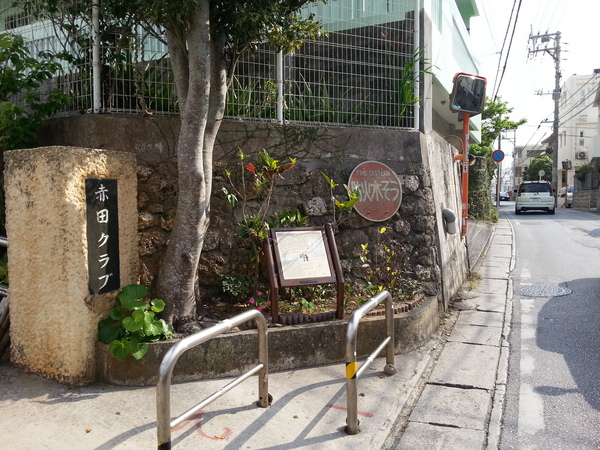

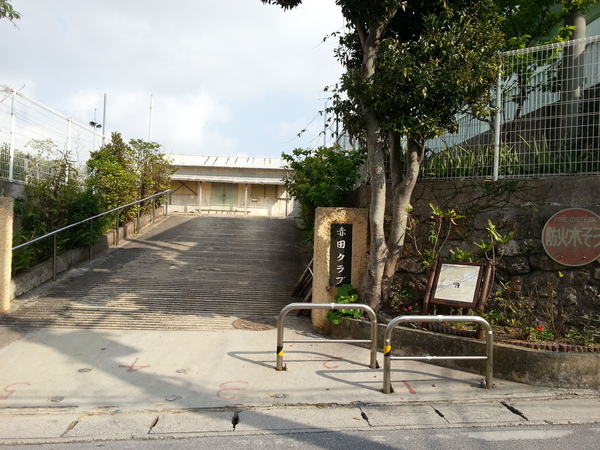
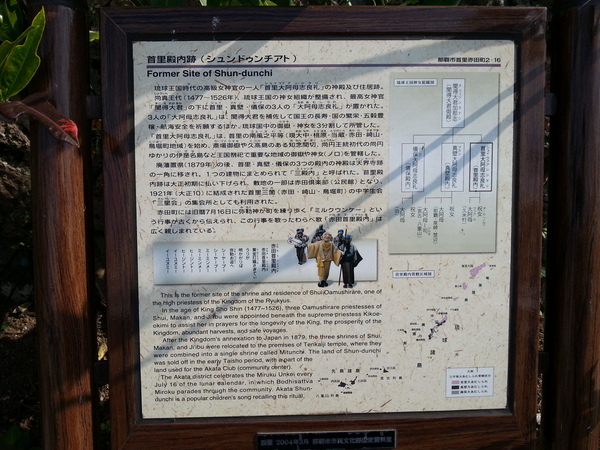
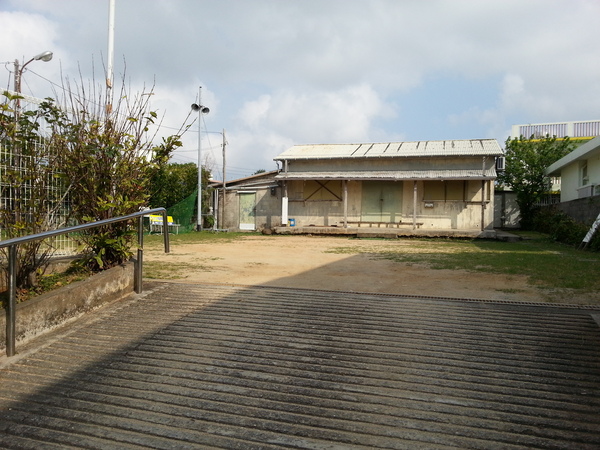
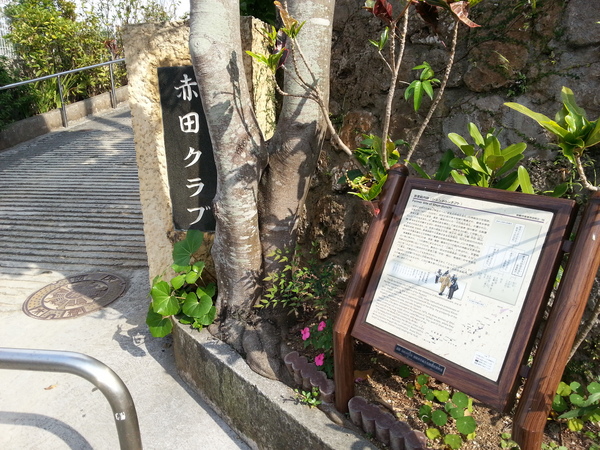
This is the former site of the shrine and residence of Shuiufuanshitari, one of the high priestesses of the Ryukyu Kingdom.
Basic information
- Address
- 903-0813 2-16 Akata Shuri Naha Okinawa
- Business hours
- Nothing in particular
- Close day
- Nothing in particular
- Charge
- Free
- Parking
- None
- Access information
- A 6-minute walk from the monorail Shuri station.
Additional Information
- Academic information
- This is the former site of the shrine and residence of Shuiufuanshitari, one of the high priestesses of the Ryukyu Kingdom.
In the age of King Sho Shin (1477~1526), three Shuiufuanshitari priestesses of Shui (Shuri), Makan (Makabe), and Ji’ibu (Gibo) were appointed beneath the supreme priestess Kikoe-okimi to assist her in prayers for the longevity of the King, prosperity of the Kingdom, abundant harvests, and safe voyages and, divided all Ryukyus Utakis and, Noros in three sections and, managed them. The “Shuiufuanshitari”, managed the major Utaki and, Noros which belonged to Shuri Haenohira (present: Onaka, To-baru, Tonokura, Akata, Sakiyama, and Torihori-cho area) and included Sefa-utaki, Kudaka Island whichi belonged to Chinen-magiri, and, Izena Island where the place related to King Shoen who was a founder of Shoens royal family. She directed them in Royal ceremonial events.
After the Kingdom’s annexation to Japan, in 1879, the three shrines of Shui (Shuri), Makan (Makabe), and Ji’ibu (Gibo) were relocated to the premises of Tenkaiji temple, where they were combined into a single shrine called Mitunchi. The land of Shun-dunchi was sold off in the early Taisho period, with a part of the land used for the Akata Club (community center). In 1921, it was also used as the meeting place for the junior high school student group, the Sanseikai, made up of the Shuri Sanka (Akata, Sakiyama, and Torihori-cho).
The Akata district celebrates the Miruku Utaki (Unkei) every July 16th of the lunar calendar, in which Bodhisattva Miruku parades through the community. “Akatasun-dunchi” is a popular children’s song, recalling this ritual. - Quote
- Naha City Museum of History
